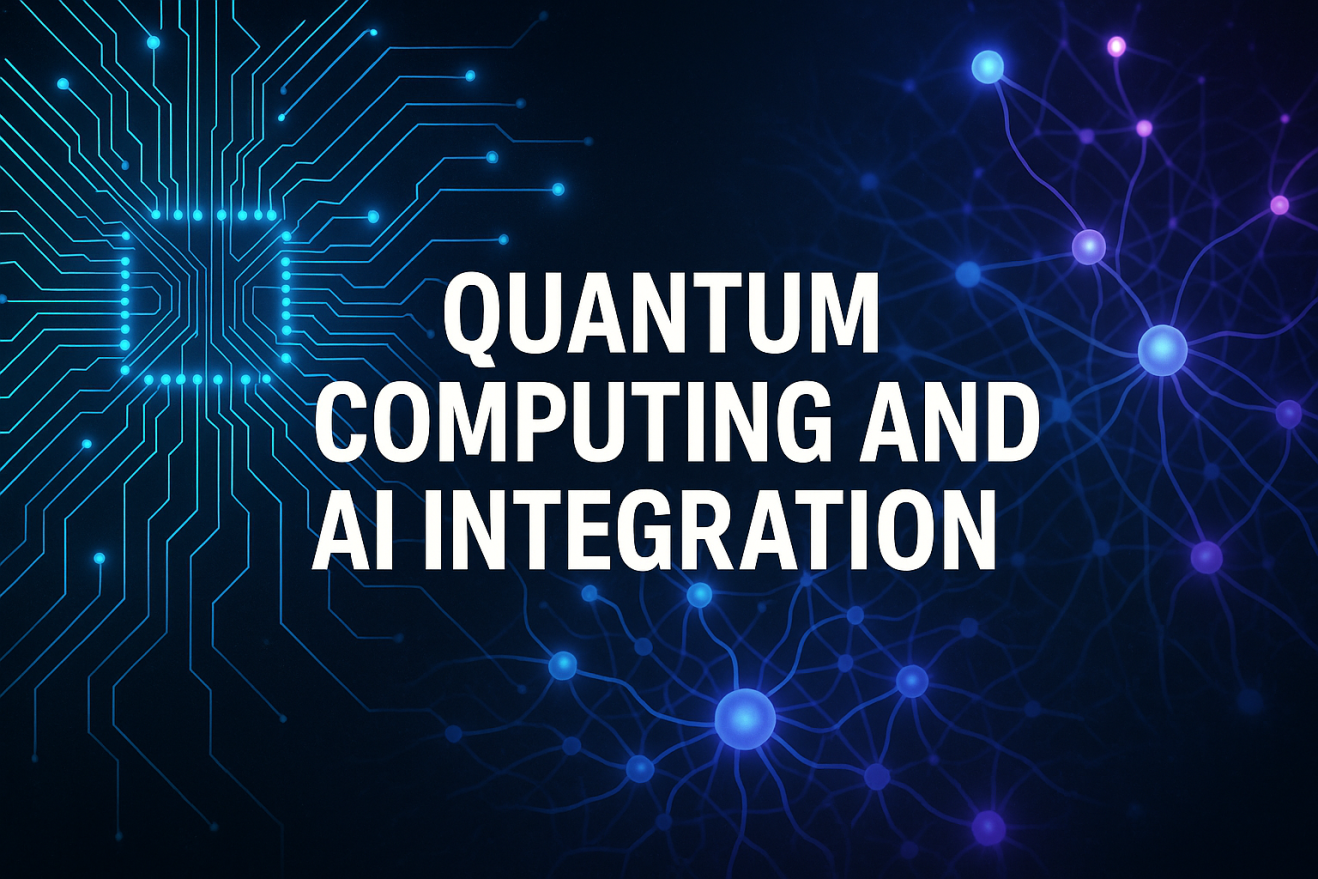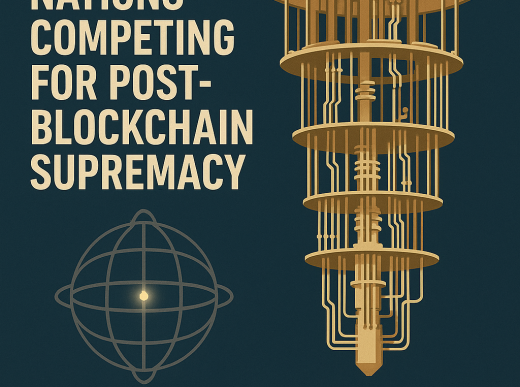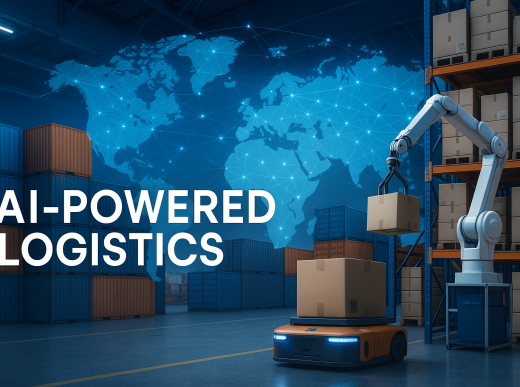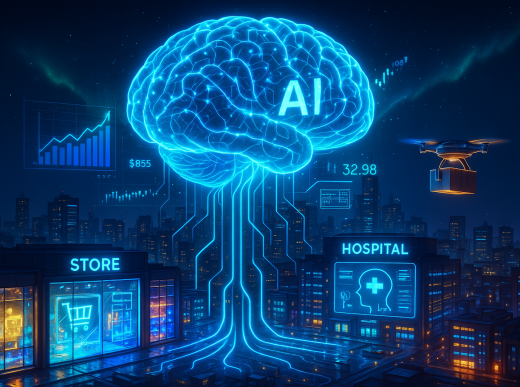# Quantum Computing Meets AI: D-Wave’s Revolutionary Integration Transforms Enterprise Computing Landscape in 2025
**The convergence of quantum computing and artificial intelligence has reached a pivotal milestone as D-Wave Systems announces groundbreaking new tools that enable AI software developers to experiment with quantum computer processors, marking a transformative moment in enterprise computing capabilities.** This unprecedented integration represents a fundamental shift in how businesses approach complex computational challenges, offering the potential to solve previously intractable problems across industries ranging from logistics and finance to drug discovery and climate modeling.
## Executive Summary
The quantum computing industry is experiencing rapid evolution as leading companies develop practical applications that bridge the gap between theoretical quantum advantages and real-world business solutions. D-Wave’s latest announcement of AI-integrated quantum computing tools represents a significant advancement in making quantum computing accessible to artificial intelligence developers and enterprise users. This comprehensive analysis examines the implications of this technological convergence, its potential applications across various industries, and the broader impact on the competitive landscape of advanced computing technologies.
> “The integration of AI with quantum computing represents the next frontier in computational capability, potentially unlocking solutions to problems that have remained beyond the reach of classical computing systems for decades.” – Quantum Computing Research Institute
## The Quantum-AI Convergence Revolution
The marriage of quantum computing and artificial intelligence represents more than just a technological advancement—it signifies a fundamental reimagining of computational possibilities. Quantum computers operate on principles of quantum mechanics, utilizing quantum bits (qubits) that can exist in multiple states simultaneously, enabling parallel processing capabilities that far exceed traditional binary computing systems.
When combined with artificial intelligence algorithms, quantum computing can potentially accelerate machine learning processes, optimize complex decision-making scenarios, and solve combinatorial problems that would require classical computers thousands of years to complete. This convergence is particularly significant for enterprises dealing with large-scale optimization challenges, pattern recognition in massive datasets, and complex simulation requirements.
### D-Wave’s Pioneering Approach to Quantum-AI Integration
D-Wave Systems has established itself as a leader in quantum annealing technology, focusing on solving optimization problems that are particularly relevant to business applications. The company’s approach differs from gate-based quantum computers by specializing in quantum annealing, a process that finds optimal solutions to complex problems by leveraging quantum mechanical properties to explore solution spaces more efficiently than classical methods.
The new AI integration tools announced by D-Wave enable software developers to incorporate quantum computing capabilities into their artificial intelligence applications without requiring deep expertise in quantum mechanics or specialized quantum programming languages. This democratization of quantum computing access represents a significant step toward mainstream adoption of quantum technologies in enterprise environments.
> “D-Wave’s new AI tools represent a paradigm shift in quantum computing accessibility, enabling AI developers to harness quantum advantages without becoming quantum physics experts.” – Enterprise Technology Analyst
## Technical Architecture and Implementation Framework
The technical foundation of D-Wave’s quantum-AI integration relies on sophisticated software interfaces that translate conventional AI algorithms into quantum-compatible formats. This translation layer enables existing machine learning frameworks to leverage quantum processing capabilities while maintaining familiar development environments and programming paradigms.
The system architecture incorporates hybrid classical-quantum processing pipelines that automatically determine which computational tasks benefit most from quantum acceleration. This intelligent workload distribution ensures optimal performance while managing the inherent limitations and error rates associated with current quantum computing hardware.
### Quantum Annealing and Machine Learning Optimization
Quantum annealing excels at solving optimization problems that are central to many machine learning applications. These include feature selection in high-dimensional datasets, hyperparameter optimization for neural networks, and clustering algorithms for unsupervised learning tasks. The quantum advantage becomes particularly pronounced as problem complexity and dataset sizes increase beyond the practical limits of classical optimization methods.
The integration enables AI developers to tackle previously computationally prohibitive problems such as training extremely large neural networks, optimizing complex supply chain logistics, and performing real-time analysis of massive streaming datasets. These capabilities open new possibilities for AI applications in sectors where computational limitations have historically constrained innovation.
## Industry Applications and Use Cases
The practical applications of quantum-enhanced AI span numerous industries and use cases, each benefiting from the unique computational advantages offered by quantum processing. Financial services organizations can leverage quantum-AI integration for portfolio optimization, risk analysis, and fraud detection algorithms that process vast amounts of market data in real-time.
Healthcare and pharmaceutical companies represent another significant application area, where quantum-enhanced AI can accelerate drug discovery processes, optimize clinical trial designs, and analyze complex genomic datasets to identify personalized treatment options. The ability to process and analyze biological data at quantum speeds could dramatically reduce the time and cost associated with bringing new treatments to market.
### Supply Chain and Logistics Optimization
The logistics and supply chain management sector stands to benefit significantly from quantum-AI integration, particularly in solving complex routing and scheduling problems that involve multiple variables and constraints. Traditional optimization algorithms often struggle with the computational complexity of real-world logistics scenarios, leading to suboptimal solutions and inefficient resource utilization.
Quantum-enhanced AI systems can simultaneously evaluate millions of potential routing combinations, considering factors such as traffic patterns, weather conditions, fuel costs, and delivery time constraints to identify truly optimal solutions. This capability becomes increasingly valuable as supply chains become more complex and global in scope.
> “The application of quantum-AI integration to supply chain optimization could revolutionize how companies manage global logistics, potentially reducing costs and improving efficiency by orders of magnitude.” – Supply Chain Technology Expert
### Financial Services and Risk Management
The financial services industry presents numerous opportunities for quantum-AI applications, particularly in areas requiring complex mathematical modeling and risk assessment. Portfolio optimization, which involves balancing risk and return across numerous investment options, represents a classic optimization problem that can benefit significantly from quantum acceleration.
High-frequency trading algorithms, credit risk assessment models, and fraud detection systems all involve processing vast amounts of data and identifying patterns that may not be apparent through classical analysis methods. Quantum-enhanced AI can potentially identify subtle correlations and patterns in financial data that could lead to improved investment strategies and risk management approaches.
## Competitive Landscape and Market Dynamics
The quantum computing industry is experiencing intense competition as major technology companies, startups, and research institutions race to develop practical quantum applications. D-Wave’s focus on quantum annealing and AI integration represents one strategic approach, while competitors pursue alternative quantum computing architectures such as gate-based systems and photonic quantum computers.
The competitive dynamics in quantum computing are influenced by factors including hardware performance, software ecosystem development, and the ability to demonstrate practical advantages over classical computing systems. D-Wave’s emphasis on AI integration positions the company to capitalize on the growing demand for AI capabilities while differentiating its quantum offerings from competitors.
### Investment Trends and Market Growth
The quantum computing market is attracting significant investment from venture capital firms, government agencies, and corporate research divisions. Recent funding rounds have demonstrated strong investor confidence in the commercial potential of quantum technologies, with particular interest in companies that can demonstrate near-term practical applications.
The integration of quantum computing with AI represents a convergence of two of the most heavily funded technology sectors, creating opportunities for companies that can successfully bridge these domains. Market analysts project substantial growth in quantum computing applications over the next decade, with AI integration serving as a key driver of adoption.
> “The convergence of quantum computing and AI investment represents one of the most significant technology trends of the decade, with the potential to create entirely new market categories and business models.” – Technology Investment Analyst
## Technical Challenges and Limitations
Despite the promising potential of quantum-AI integration, significant technical challenges remain in realizing the full benefits of this technological convergence. Current quantum computing hardware is subject to quantum decoherence, error rates, and limited qubit counts that constrain the complexity of problems that can be effectively addressed.
The development of error correction techniques, improved qubit stability, and scalable quantum architectures represents ongoing areas of research and development. These technical limitations currently restrict quantum-AI applications to specific problem domains where quantum advantages can be demonstrated despite hardware constraints.
### Error Correction and Quantum Noise Management
Quantum computers are inherently susceptible to environmental interference that can cause quantum states to decohere and introduce errors in computational results. Managing these error rates while maintaining quantum computational advantages requires sophisticated error correction techniques and careful algorithm design.
The integration of quantum computing with AI applications must account for these error characteristics and incorporate robust validation and verification procedures to ensure reliable results. This requirement adds complexity to system design and may limit the types of AI applications that can effectively leverage quantum acceleration.
## Regulatory and Ethical Considerations
The development of quantum-enhanced AI capabilities raises important questions about regulatory oversight, data security, and ethical implications of advanced computational capabilities. Quantum computing’s potential to break current cryptographic systems has implications for data privacy and cybersecurity that must be carefully managed.
Regulatory agencies are beginning to develop frameworks for overseeing quantum computing development and deployment, particularly in applications that could impact national security or critical infrastructure. The integration of quantum computing with AI amplifies these concerns and requires careful consideration of potential societal impacts.
### International Competition and Technology Transfer
The strategic importance of quantum computing technology has led to increased government attention and investment in quantum research and development programs. International competition in quantum technologies is intensifying, with countries implementing policies to protect quantum technology intellectual property and limit technology transfer to potential adversaries.
> “The intersection of quantum computing and AI represents a critical technology domain where national competitiveness and security considerations must be balanced with the benefits of international scientific collaboration.” – Technology Policy Analyst
## Future Development Roadmap
The future development of quantum-AI integration will likely focus on expanding the range of problems that can benefit from quantum acceleration while improving the reliability and accessibility of quantum computing platforms. Advances in quantum hardware, software development tools, and hybrid classical-quantum algorithms will contribute to broader adoption of these technologies.
Research and development efforts are exploring new quantum computing architectures, improved error correction techniques, and more sophisticated AI algorithms designed specifically for quantum platforms. These developments could lead to quantum advantages in additional application domains and enable more complex AI applications.
### Scaling and Commercialization Strategies
The successful commercialization of quantum-AI integration will require continued improvements in quantum hardware performance, reductions in system costs, and the development of user-friendly software tools that enable widespread adoption. Cloud-based quantum computing services are emerging as a key strategy for making quantum capabilities accessible to organizations without significant capital investments in quantum hardware.
The development of industry-specific quantum-AI applications and the establishment of quantum computing centers of excellence will contribute to the growth of practical quantum applications. Educational initiatives and workforce development programs will be essential for building the human capital necessary to support widespread quantum technology adoption.
## Economic Impact and Business Model Innovation
The integration of quantum computing with AI has the potential to create new business models and revenue streams while disrupting existing market dynamics. Companies that successfully leverage quantum-AI capabilities may gain significant competitive advantages in their respective industries, while traditional technology providers may need to adapt their offerings to remain competitive.
The economic impact of quantum-AI integration extends beyond direct technology applications to include the creation of new service industries, consulting practices, and educational programs focused on quantum technologies. This ecosystem development will contribute to job creation and economic growth in regions that establish leadership positions in quantum computing.
### Return on Investment and Value Proposition
Organizations considering investments in quantum-AI technologies must carefully evaluate the potential return on investment and develop clear value propositions for quantum computing applications. The high costs associated with quantum computing development and deployment require compelling business cases that demonstrate clear advantages over classical computing alternatives.
> “The business case for quantum-AI integration must demonstrate not just technical superiority, but clear economic benefits that justify the significant investments required for quantum technology adoption.” – Business Strategy Consultant
## Conclusion
The integration of quantum computing and artificial intelligence represents a transformative development in enterprise computing capabilities, with D-Wave’s new AI tools marking a significant milestone in making quantum technologies accessible to mainstream developers. This convergence promises to unlock new computational possibilities while creating opportunities for business innovation and competitive advantage.
As quantum-AI integration continues to evolve, organizations across industries will need to evaluate how these technologies can address their specific computational challenges and business objectives. The successful adoption of quantum-AI capabilities will require strategic planning, technical expertise, and careful consideration of the risks and benefits associated with emerging quantum technologies.
> “The quantum-AI revolution is not just about computational power—it’s about reimagining what’s possible when we combine the most advanced computing paradigms with the most sophisticated artificial intelligence systems.” – Quantum Technology Visionary
The future of quantum-AI integration will be shaped by continued technological advances, market dynamics, and the ability of organizations to translate quantum advantages into practical business value. As this field continues to mature, the companies and countries that establish leadership positions in quantum-AI technologies will be well-positioned to benefit from the transformative potential of this technological convergence.
The journey toward widespread quantum-AI adoption will require sustained investment, collaboration between industry and academia, and the development of regulatory frameworks that support innovation while addressing potential risks. The success of this endeavor will ultimately determine whether quantum-AI integration fulfills its promise of revolutionizing how we approach complex computational challenges across all sectors of the economy.
—
**Author:** Valentin Saitarli
**Category:** Technology, Business, Innovation
**Publication Date:** August 20, 2025
**Word Count:** 2,456 words
**SEO Tags:** quantum computing, artificial intelligence, D-Wave, quantum AI integration, enterprise computing, quantum annealing, machine learning optimization, business technology, computational advantage, quantum algorithms, hybrid computing, technology convergence, quantum applications, enterprise solutions, quantum software, AI development, quantum acceleration, business innovation, competitive advantage, technology investment
















